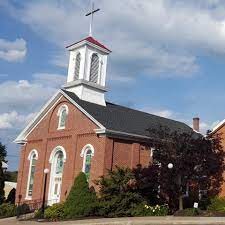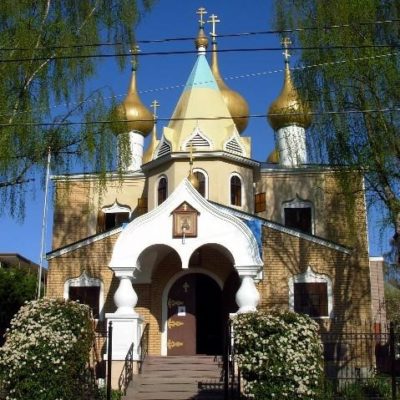National Council of Churches

Introduction
The National Council of Churches is also known as the National Council of Churches of Christ in the USA. It is considered the leading force for the ecumenical movement for Christianity. It is interdenominational and consists of local and state councils of churches and interfaith organizations. Their purpose is to provide an organization where member churches can express a common faith.
The National Council of Churches belongs to the World Council of Churches. They meet together annually at a general assembly with the representatives from the different member denominations. Their focus consists of five ecumenical program commissions; those in Communication, Education and Leadership ministries, Faith and Order, Interfaith Relations, and Justice and Advocacy. (Reichley, James. 2002).
They have a significant following among the different denominations of churches and represent the majority of Protestant and Orthodox Churches in the United States. There are different interlocking departments that are involved in the international operations of the National Council of Churches. The Church World Service is used to send large amounts of money and aid such as food, clothing and other materials to different countries around the world. The National Council of Churches has a tax exempt status. The current General Secretary for the National Council of Churches is Bob Edgar who is a former Democratic congressman.
The headquarters for the National Council of Churches is in New York, New York. There is a public policy office on Capitol Hill in Washington DC. Their preferred translation of the Bible is the Revised Standard Version and the New Revised Standard Version of the Bible. There are some liberals among the National Council of Churches who are trying to translate the Bible with the language becoming gender neutral. The textbooks that are used are the New English Bible.
History
The National Council of Churches was founded and organized in 1950 based in New York, New York. It is the forerunner to the Federal Council of Churches which was founded in 1908.
Spokespeople from denominations of different mainline churches began to meet together around 1950 to better understand the occurrences that were happening in their churches. They try to search for a way nations of the world could communicate and come together. They were trying to establish a worldwide forum for nations and churches that could resolve their differences before there were any more conflicts.
The Federal Council of Churches created the Commission to Study the Bases of a Just and Durable Peace in 1944. The chairman of this commission was John Foster Dulles. The commission issued the Six Pillars of Peace which called for the creation of a United Nations structure that would assure peace among all nations. The six Pillars of Peace became part of the discussions which lead to the chartering of the United Nations. (Erdmann. 2006).
The National Association of Evangelicals (NAE) was founded in 1942 and was a conservative Protestant group who wanted to merge into a single body of basic evangelical programs that was more conservative than the Federal Council of Churches. Harold John Ockenga was one of its main organizers. Ockenga was the pastor of the Boston Park Street Church and tried to discredit the Federal Council of Churches because of essential doctrines of the Christian faith. The National Association of Evangelicals was created to represent the Bible believing Christians. They adopted by-laws to prevent members of churches form having dual membership with the NAE and the Federal Council of Churches in 1944. (Carpenter, Joel A. 1997).
The National Council of Churches provides financial assistance through its relief agency, the Church World Services. The Church World Service was founded in 1946 for the relief and development of refugees of the denominations of Protestant, Anglican and Orthodox churches. They attempt to meet human needs and promote self-reliance for all denominations. (Reichley, James. 2002).
The Federal Council of Churches became the National Council of Churches of Christ in 1950 and has continued to take a liberal stand on moral issues and church issues. It is believed the Federal Council of Churches dissolved its organization because it was being investigated by the United States Naval Intelligence Department for subversive activities and it was reported to the Committee on un- American activities of the Congress.
The Federal Council of Churches as well as The National Council of Churches have been accused in conspiring against Christianity in America. They followed the course of Marxist social gospel and the socialist tenets of Illuminism which came out of the seminaries and divinity schools in England and Germany and almost destroyed the spiritual and moral structure of Europe. Illuminism is a philosophy giving faith to man and in man instead of having faith in God. (Rhoads, Anderson. 2012).
Walter Raushenbusch, or Walter Rauschenbush, was born October 4, 1861 in upstate New York City, New York. He was raised on the orthodox Protestant doctrines by his German father, Karl August Raushenbusch, who was a minister who taught at the Rochester Theological Seminary which his son attended. Walter Raushenbusch believed the idea of the inerrancy of the Bible lacked the qualities for a sound reasoning and made it impossible to defend the idea. Raushenbusch also questioned substitutionary atonement. (Britannica 2004).
Rauschenbusch along with friends formed a group called the Brotherhood of the Kingdom in 1892. They claimed the Spirit of God was moving men in their generation toward a better understanding of the idea of the Kingdom of God on earth. It was their intention to re-establish this claim to the churches. (Britannica 2004).
Rauschenbusch believed the Kingdom of God had been dropped as the primary aim of Christianity and replaced by personal salvation focus. He believed men were seeking to save their own souls and uncaring about evangelization of the world. (Britannica 2004).
Rauschenbusch believed whoever separates religious and social life has no understanding of Jesus Christ. He preached society had the responsibility to care for the world rather than the individual and stated in 1893 that the only power that can make socialism succeed is religion. He saw socialism as the goal with religion being the vehicle to achieve that goal. He wrote “Theology for the Social Gospel” in 1917 claiming the Baptism of John the Baptist was not a ritual act of individual salvation but an act of dedication to a religious and social movement. Because of his views, he was condemned as heretical. Walter Raushenbusch became the primary theologian of the Social Gospel movement of the twentieth century. (Rhoads, Anderson. 2012).
Harry F. Ward was a student and protégé of Walter Rauschenbusch. He was from the Union theological Seminary and was a leader in the Federal Council of Churches. He influenced hundreds of Protestant ministers and leaders with his philosophy. He was suspected of being a Communist and accused of spreading Communism in 1946 as the infiltration of Communism was spreading throughout the churches and educational institutions. (Rhoads, Anderson. 2012).
The House Committee on Un-American Activities (HCUA) investigated the National Council of Churches February 25, 1960. The staff director, Richard Arens, testified that the National Council of Church was fronting many Communist causes.
President Dwight Eisenhower had many leftists appointed to key posts in the Administration who belonged to the National Council of Churches. The Secretary of State, Foster Dulles, the Mutual Security Director, Harold Stassen who had been the vice President of the National Council of Churches and the President of the International Council of Religious Education, the head of the manpower division of the Department of Defense was Arthur S. Flemming, who also became the Secretary of Health, Education and Welfare. President Eisenhower spoke at many of the functions of the National Council of Churches, giving it special prestige. (Smith, Wynn. 2009).
The Senate Internal Security Subcommittee and the House Committee on Un-American Activities had thousands of pages of testimony on the famous G. Bromley Oxnam hearing in 1953. Oxnam admitted his participation in a number of communist projects and implicated the National Council of Churches as his helpmate. The National Council of Churches still pushed to abolish Bible reading in public schools in 1954. Walter Reuther presented a check to the National Council of Churches for $200,000. (Carpenter, Joel A. 1997).
The National Council of Churches World Order Study Conference met at Cleveland, Ohio November 18-21, 1958 to propose: the diplomatic recognition by the United States of Red China and to also admit Red China to the United Nations; the proposal of a permanent United Nations police force and the abolition of universal military training, and the Selective Service System; and the proposed the extension of trade and travel without restriction between the United States and Communist countries.
On September 30, 1952 The National Council of Churches published a Revised Standard Version of the Bible with many passages altered, and phrases substituted to fit the social gospel of the National Council of churches.
The National Council of Churches created an emergency Commission on Religion and Race in June 7, 1963 which was headed by Dr. Martin Luther King, Walter Reuther, and Eugene Carson Blake. Because of the Commission on Religion and Race the National Council of Churches began a civil rights project in Mississippi and named it the Delta Ministry in September 1964. They began the Delta Ministry because of their interest in the southern black freedom struggles. They provided a number of programs for the blacks in the area such as relief including distributing food and clothing, education and training programs, as well as leadership skills and economic and community development which also included supervising the federally funded health clinics in Mound Bayou and Greenville Mississippi. There were some of the National Council of Churches denominations from the south who refused to contribute to the program and threatened to withdraw their financial support. (Smith, Wynn. 2009).
The National Council of Churches also started a project in July 1966 called the Freedom city. They purchased 400 acres of land near Greenville Mississippi for displaced black field hands. The main goal for the Freedom City was economic self-sufficiency for the people. This became the primary project for the Delta Ministry. This project failed because of financial setbacks and poor planning on the Delta Ministry behalf. The Ministry exhausted its initial funds before construction of permanent housing started. (Smith, Wynn. 2009).
The National Council of Churches condemned the massacre of Vietnamese civilians by U.S. troops at their sixth Triennial Conference held at Detroit December 1969. They also recommended U.S. Churches raise funds to support the American military deserters and draft dodgers that sought refuge in Canada. They also asked for the collection of money from agencies to give material aid to the Communist Vietcong, and for the promotion of the continuing Vietnam Moratorium project. (Smith, Wynn. 2009).
Recently the National Council of Churches has condemned Israel for having established checkpoints, roadblocks and gates across the Occupied Territories and making daily life and travel for the Palestinians difficult. They also oppose U.S. foreign policy and condemn U.S. intervention. They opposed both the first and second Gulf War. (Laksin. 2005).
The National Council of Churches was involved in the environmental campaign against the automobile industry in 2002. They called the campaign “What would Jesus drive?” (Burkeman. 2002; EEN. 2002).They also levied an opposition campaign against the Clean Air Act, and expressed concern over the Patriot Act. (Laksin. 2005).
The denominations belonging to the National Council of Churches membership range from United churches and Reformed churches to the Orthodox churches and American churches to name a few:
The United churches:
United Methodist Church
United Presbyterian Church of USA
United Church of Christ
The United Methodist Church
Protestant Episcopal Church
The Reformed churches:
Reformed Church of America
Hungarian Reformed Church in America
African Methodist Episcopal Church
Church of the Brethren
Religious Society of Friends
New Jerusalem
The Orthodox churches:
The Antiochian Orthodox Christian Archdiocese of New York (withdrew membership on July 28, 2005)
North America Syrian (Orthodox) Church of Antioch
Russian Orthodox
The America churches:
Lutheran Church of America
American Baptist Convention
Progressive National Baptist Convention
National Baptist Convention of America
Seventh Day Baptist General Conference
Moravian Church in America (Northern Province)
Moravian Church in America (Southern Province)
Polish National Catholic of America
Church of America Greek
Catholic of America
Belief
The National Council of Churches is a community of Christian denominations who believe in the full unity of the church. They accept the general statement that comes from the Preamble to The National Council of Churches constitution which states: “The National Council of Churches is a community of Christian communions, which, in response to the gospel as revealed in the Scriptures, confess Jesus Christ, the incarnate Word of God, as Savior and Lord. These communions covenant with one another to manifest ever more fully the unity of the Church. Relying upon the transforming power of the Holy Spirit, the communions come together as the Council in common mission, serving in all creation to the glory of God.”
The National Council of Churches only holds the beliefs that are in common with the member churches, conventions denominations and communions. They allow their member to have their own unique heritage, teachings and practices that are different to other members.
The National Council of Churches strive to understand the other member’s traditions and work together to identify areas of beliefs they hold in common. They strive to unite all issues of the ecumenical movement. They consider themselves as people of different faiths that struggle to understand different matters of theology and worship practices.
The National Council of Churches acknowledges the oneness of the church of Jesus Christ and keeps the Gospel as the visible unity of one faith and one Eucharist communion. This is expressed in their worship and in their common life in Christ.
References:
Burkeman, Oliver. (November 2002). “’What would Jesus drive?’ gas-guzzling Americans are asked.” The guardian. Retrieved from: ‘What would Jesus drive?’ gas-guzzling Americans are askedwww.theguardian.com/world/2002/nov/14/usa.oliverburkeman
Carpenter, Joel A. (1997). Revive Us Again: The Reawakening of American Fundamentalism.Oxford.
Editors of Encyclopedia Britannica. (2004). Walter Rauschenbusch. Encyclopedia Britannica.
Erdmann, Martin. (2005). Building the Kingdom of God on Earth: The Churches’ Contribution to Marshal Public Support for World Order and Peace, 1919-1945. Eugene, Or: Wipf and Stock Publishers
Evangelical Environmental Network. (Fall 2002)).What Would Jesus Drive (WWJDrive) educational campaign. Creation Care Magazine issue of Creation Care (PDF, 760 KB . Retrieved from: http://www.whatwouldjesusdrive.info/intro.php
Laksin, Jacob. (2005). “National Council of Churches: Worldviews, Activities, and Agendas”. DiscoverTheNetworks.org. Retrieved from: http://www.discoverthenetworks.org/Articles/nccexpandedagenasactivities.html
National Council of the Churches of Christ in the USA. Official Web site: retrieved from: http://nationalcouncilofchurches.us/
Reichley, James. (2002).Faith in Politics. Washington, D.C.: The Brookings Institution).
Rhoads, Gladys; Anderson, Nancy. (2012). McIntire Defender of Faith and Freedom. Xulon Press.
Smith, Jessie; Wynn, Linda. (2009). Freedom Facts and Firsts: 400 Years of the African American Civil Rights Experience. Canton, Mi. Visible Ink Press.
Cite Article Source
MLA Style Citation:
Holstein, Joanne “National Council of Churches:.” Becker Bible Studies Library Jan 2009.<https://guidedbiblestudies.com/?p=2769,>.
APA Style Citation:
Holstein, Joanne (2009, January) “National Council of Churches: .” Becker Bible Studies Library. Retrieved from https://guidedbiblestudies.com/?p=2769,.
Chicago Style Citation:
Holstein, Joanne (2009) “National Council of Churches:.” Becker Bible Studies Library (January), https://guidedbiblestudies.com/?p=2769, (accessed).

